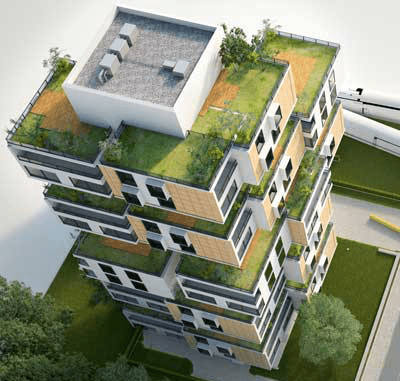Meghaa Gangahar
Alliance for an Energy Efficient Economy,
New Delhi, India
Akash Goenka
Alliance for an Energy Efficient Economy,
New Delhi, India
Corresponding Author: akash@aeee.in
Sandeep Kachhawa
Alliance for an Energy efficient Economy,
New Delhi, India
Sangeeta Mathew
Alliance for an Energy Efficient Economy,
New Delhi, India
Satish Kumar
Alliance for an Energy Efficient Economy,
New Delhi, India
Rajita Kurup
Centre for Chronic Disease Control, New Delhi, India
Indumathi Arunan
Centre for Chronic Disease Control, New Delhi, India
Sunila Dixit
Centre for Chronic Disease Control, New Delhi, India
Poornima Prabhakaran
Centre for Chronic Disease Control, New Delhi, India
Cite this article
Highlights
- The lived experience of the survey administrators of a nationwide hospital energy survey capturing on-ground realities and learnings often precluded from technical survey reports
- Transferrable learnings that can help make future commercial building energy consumption surveys quicker, less cumbersome, less costly, and more effective
Abstract
As part of the effort to foster a more systematic approach to commercial building energy data collection and reporting, this paper aims to bring out the “lived experience” of on-ground data collection from the recently concluded Hospital Energy Consumption Survey conceptualized and conducted by the National Centre for Disease Control (NCDC), Directorate General of Health Services, Ministry of Health & Family Welfare, Government of India, under the aegis of the National Program for Climate Change and Human Health. It was administered and overseen by the Alliance for Energy Efficient Economy (AEEE) and the Centre for Chronic Disease Control (CCDC). This paper captures the authors’ on-ground survey experience and transferable learning, typically precluded from technical survey reports. The authors believe that given the challenges in collecting relevant energy data from the buildings sector, their experiences can offer a unique insight into the on-ground realities of collecting technical data and suggest transferrable learnings that can help make future commercial building energy consumption surveys quicker, less cumbersome, less costly, and more effective.
References
- GoI, “India’s Updated First Nationally Determined Contribution Under Paris Agreement (2021-2030),” UNFCCC, 2022.
- MoEFCC, “India’s long-term low-carbon development strategy.,” Ministry of Environment, Forest and Climate Change, Government of India, 2022.
- A. Goenka, P. Prabhakaran, S. Kaur, S. Kumar, S. Kachhawa, S. Prakash and R. Kurup, “Towards Climate-smart Hospitals: Methodology and Pilot of India’s First Nationwide Hospital Energy Survey.,” in 2022 ACEEE Summer Study on Energy Efficiency in Buildings, 2022.
- Alliance foe an Energy Efficient Economy, AEEE Hospital Energy Survey Questionnaire, 2022.
- US EIA, “How We Chose Buildings for the 2018 CBECS,” 20 June 2019. [Online]. Available: https://www.eia.gov/consumption/commercial/reports/2018/methodology/sampling.php.
- National Centre for Disease Control, “Towards Climate-smart Hospitals: Hospital Energy Consumption Survey Insights”. 2023. (Unpublished)
- MoHFW, “National Health Profile 2020,” Ministry of Health and Family Welfare, Government of India, 2020.
- M. Iyer, S. Kumar, S. Mathew, H. Stratton, P. Mathew, and M. Singh, “Establishing a Commercial Buildings Energy Data Framework for India: A Comprehensive Look at Data Collection Approaches, Use Cases and Institutions”: Escholarship.org, Oct. 31, 2016. [Online]. Available: https://doi.org/10.2172/1375634

 Bishal Thapa
Bishal Thapa





 Fred Sherman
Fred Sherman Sumedha Malaviya
Sumedha Malaviya Satish Kumar
Satish Kumar












 The three main global energy concerns of providing access to modern energy, enhancing the security of the energy supply, and minimising the impact of energy systems on the climate have an impact on both national and international energy governance. To develop solutions that address the many facets of these difficulties, however, a variety of actors and stakeholders must be included due to the complexity of the energy challenges.
The three main global energy concerns of providing access to modern energy, enhancing the security of the energy supply, and minimising the impact of energy systems on the climate have an impact on both national and international energy governance. To develop solutions that address the many facets of these difficulties, however, a variety of actors and stakeholders must be included due to the complexity of the energy challenges. Cities are responsible for more than 70% of the world’s energy consumption and 40% to 50% of its greenhouse gas emissions. Managing increasing urbanisation is a challenge, and nations must deal with the effects it will have on the environment in terms of energy and climate.
Cities are responsible for more than 70% of the world’s energy consumption and 40% to 50% of its greenhouse gas emissions. Managing increasing urbanisation is a challenge, and nations must deal with the effects it will have on the environment in terms of energy and climate. Our transition to a future with lower carbon emissions depends heavily on buildings. They are our places of residence, rest, and employment; they also account for around one-third of the world’s greenhouse gas emissions and nearly 40% of the world’s energy usage.
Our transition to a future with lower carbon emissions depends heavily on buildings. They are our places of residence, rest, and employment; they also account for around one-third of the world’s greenhouse gas emissions and nearly 40% of the world’s energy usage.